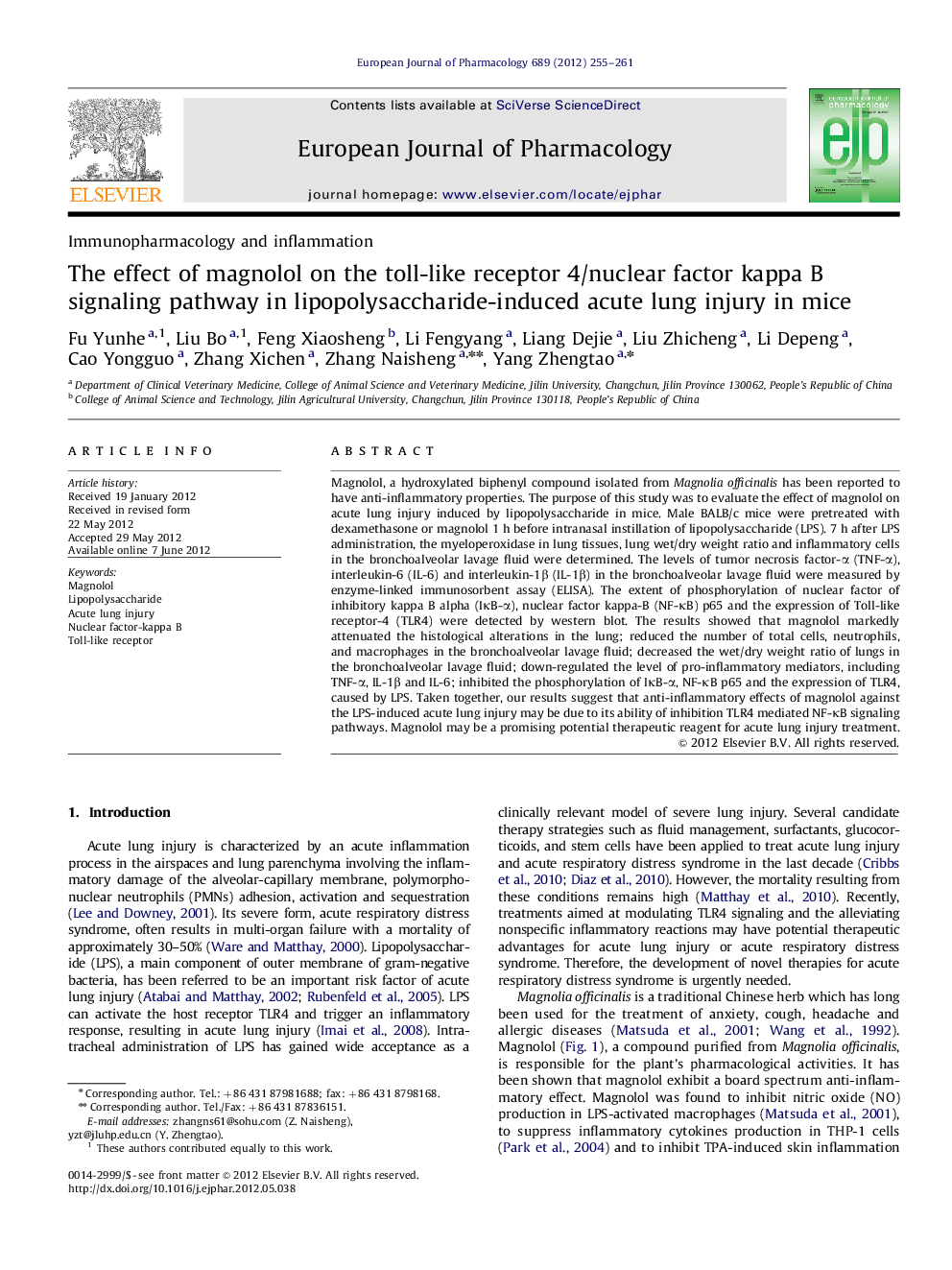| Article ID | Journal | Published Year | Pages | File Type |
|---|---|---|---|---|
| 5829447 | European Journal of Pharmacology | 2012 | 7 Pages |
Abstract
Magnolol, a hydroxylated biphenyl compound isolated from Magnolia officinalis has been reported to have anti-inflammatory properties. The purpose of this study was to evaluate the effect of magnolol on acute lung injury induced by lipopolysaccharide in mice. Male BALB/c mice were pretreated with dexamethasone or magnolol 1 h before intranasal instillation of lipopolysaccharide (LPS). 7 h after LPS administration, the myeloperoxidase in lung tissues, lung wet/dry weight ratio and inflammatory cells in the bronchoalveolar lavage fluid were determined. The levels of tumor necrosis factor-α (TNF-α), interleukin-6 (IL-6) and interleukin-1β (IL-1β) in the bronchoalveolar lavage fluid were measured by enzyme-linked immunosorbent assay (ELISA). The extent of phosphorylation of nuclear factor of inhibitory kappa B alpha (IκB-α), nuclear factor kappa-B (NF-κB) p65 and the expression of Toll-like receptor-4 (TLR4) were detected by western blot. The results showed that magnolol markedly attenuated the histological alterations in the lung; reduced the number of total cells, neutrophils, and macrophages in the bronchoalveolar lavage fluid; decreased the wet/dry weight ratio of lungs in the bronchoalveolar lavage fluid; down-regulated the level of pro-inflammatory mediators, including TNF-α, IL-1β and IL-6; inhibited the phosphorylation of IκB-α, NF-κB p65 and the expression of TLR4, caused by LPS. Taken together, our results suggest that anti-inflammatory effects of magnolol against the LPS-induced acute lung injury may be due to its ability of inhibition TLR4 mediated NF-κB signaling pathways. Magnolol may be a promising potential therapeutic reagent for acute lung injury treatment.
Related Topics
Life Sciences
Neuroscience
Cellular and Molecular Neuroscience
Authors
Fu Yunhe, Liu Bo, Feng Xiaosheng, Li Fengyang, Liang Dejie, Liu Zhicheng, Li Depeng, Cao Yongguo, Zhang Xichen, Zhang Naisheng, Yang Zhengtao,
